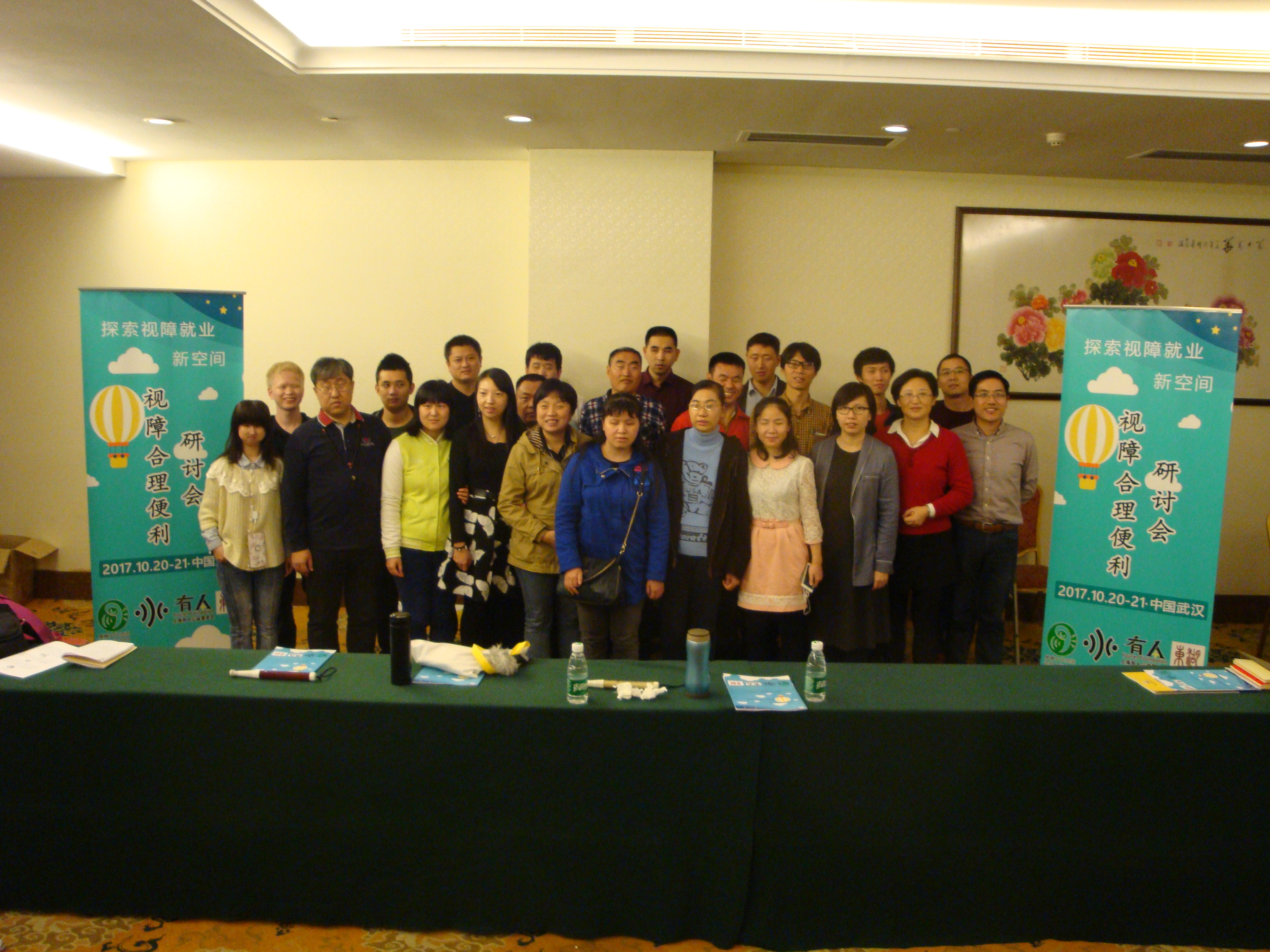Chinese blind to write a handbook on inclusive employment
chinagate.cn,October 30, 2017 Adjust font size:

On October 20, a two-day meeting on inclusive employment opened in Wuhan. About 30 blind people and academics gathered together, to discuss the outline and content of a practical handbook, which aims to help employers make proper arrangements for visually impaired employees.
The meeting was co-organized by Zhanrong Cultural Space, Beijing Sound Wave Disabled Persons’ Social Service Center, East Lake Institute for Social Advancement (EISA) and Youren Foundation.
Xu Jian, partially sighted, shared two reasonable accommodations she has experienced. Working at call centers, she once encountered difficulty when operating the call systems with screen reader. To solve the problem, adjustments have been made to cater for her special need. The other example is that one employer allows visually impaired staff to sign in by fingerprint instead of face recognition, considering that they cannot look directly into the camera.
Like Xu Jian, Jin Ling is also partially sighted. An editor of china.org.cn, she could not access information in the Office Automation (OA) system. So her supervisor would forward all the files to her. When writing caption for photos or translating, she will ask other colleagues or interns for help.
Speaking of good practices, Ding Peng from EISA commented: “Suitable job posts are important for the visually impaired in inclusive employment. If they are responsible for only one part instead of the whole task, it’s more likely that they complete it on their own.”
“We blind people should also think about what we want to do and make every effort to make it come true,” suggested Li Wanxi, a partially-sighted woman from Hong Kong.
The practices and suggestions will be included in a handbook on reasonable accommodation, provide a communication channel for both companies and the visually impaired. It will not only answer their doubts, but also collect feedbacks for improvement.
“The Ministry of Human Resources and Social Security is trying to create more work opportunities for the blind. With this book, more information can be offered to the employers,” said Qu Xiangfei, professor of the Institute of Law of the Chinese Academy of Social Sciences.
Participants also discussed a pilot project, which will help the blind acquire skills and get prepared for employment. Based on current resources and services, it could generate more experiences and practical suggestions for the stakeholders.
In every country, unemployment rate of the blind is higher than that of the sighted. Due to vision loss, the former may need reasonable accommodations at work. This concept, from United Nations’ Convention on the Rights of Persons with Disabilities (UNCRPD), means necessary and appropriate modifications and adjustments, not imposing a disproportionate or undue burden. Moreover, inclusive employment brings the visually impaired into mainstream society and provides more career choices for them.